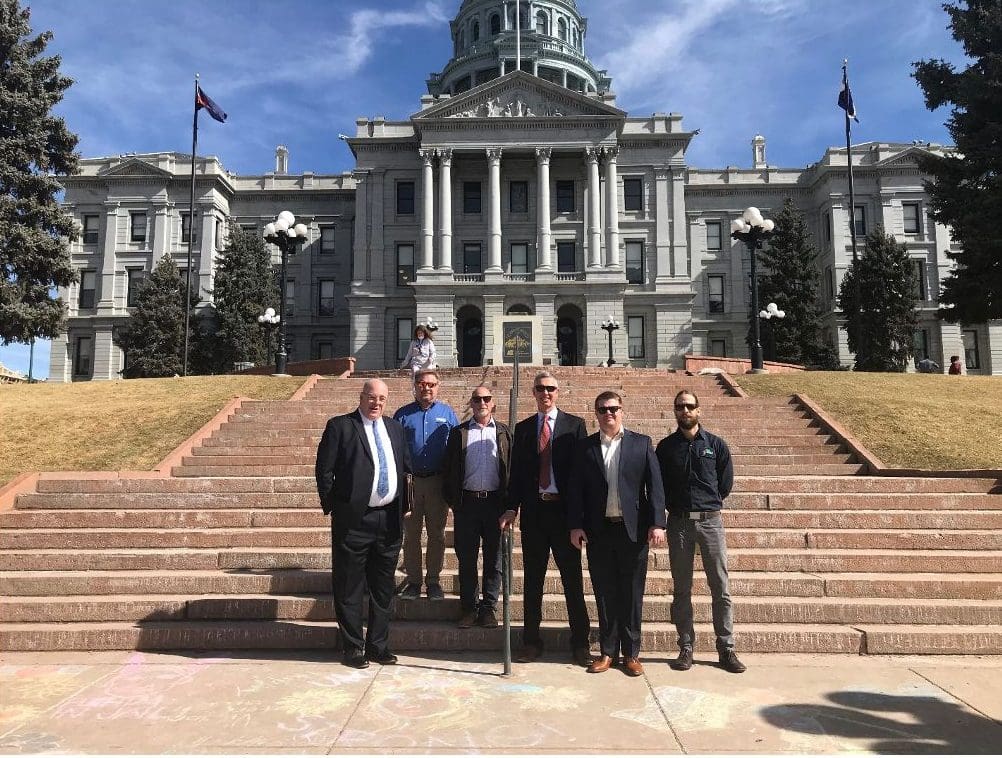
Last week, the Colorado Senate Bill 22-131 was defeated by a bipartisan vote of 6-1, after numerous NALP members and other organizations testified against it.
This legislation would have made it difficult for lawn care and landscape companies to responsibly use the EPA-approved products they need to maintain healthy greenspaces by rolling back statewide preemption.
Preemption means that no other locality, town, city, or county can regulate pesticides further than what is already regulated by the state in collaborations with EPA. When a product is approved by the EPA it has already undergone a robust review process that includes state review and approval.
“If you roll back preemption, it means all of the different counties and cities and towns in Colorado could begin to put in their own restrictions or bans,” says Andrew Bray, NALP’s VP of government relations.
In the states that don’t have statewide preemption, this can be a major issue as it is much easier from a lobbying standpoint to persuade a town council to outlaw an EPA-approved pesticide based on unscientific conclusions and emotions.
The bill’s sponsor Senator Jaquez Lewis termed the legislation “The Bee Bill” with the goal to limit the use of neonicotinoids for cosmetic use in lawns and landscapes. Bray says legislation like this fails to recognize that trained and certified applicators have processes they have to do to mitigate the risk to bees when using neonics.
Bray says a version of this bill appeared during the 2020 cycle and then the pandemic hit.
“COVID put everything on the back burner, if it wasn’t COVID-related or funding related or safety related, state legislatures weren’t doing a lot of other legislating,” Bray says. “I think there was this pent-up demand for anti-pesticide legislation this cycle as we return to some degree of normalcy.”
NALP was well prepared for the appearance of this new bill.
“I’m really proud of many of our members who were actually doing proactive meetings with their legislatures last fall and the fall before,” Bray says. “We’ve been trying to lay the groundwork about this for two years. I was really happy when we did prevail.”
Key players in testifying include the Associated Landscape Contractors of Colorado (ALCC) and large lawn and landscape organizations that have made a commitment to advocacy. The hearing lasted for nine hours and 32 minutes. Kelly Gouge of Sav-a-Tree, Mike Schulz and Jason Schmidt of Weed Man, George Rich and Jerol Mariotti of Senske Services, John Prather of FitTurf, and Mike Verde and Chad Tarkinson of Lawn Doctor all waited to testify until 9:45 p.m.
Other groups that testified in opposition of the bill included those from the agriculture, golf and structural pest control industries. When agricultural witnesses spoke, the bill sponsor would remind them that they are exempt from this law. They acknowledged that while the bill doesn’t affect them directly, it sets a precedent that makes them oppose the bill.
“This was a victory today, but this is coming back next year in Colorado,” Bray says. “This could be coming to your state in the next week or next month or next year. There’s still a lot of this coming in the pipeline and we need people to be engaged.”
He encourages landscape professionals to join Voices for Healthy Green Spaces to receive updates on the latest policy matters.
As focus on the pandemic wanes, NALP anticipates more anti-pesticide legislation to appear in states. Bray says they are tracking and monitoring everything but urges members to let the government affairs team know if they see something of concern.
The government affairs team has advocacy contact teams in place in every state and is maintaining strong relationships with state associations and allies in the agriculture and golf industries.
“It’s about recruiting people to really take action and coach them up,” Bray says. “That’s something you’re going to see a bigger emphasis on from the government relations department moving into this next year, is we want to provide our members even more tools to be active and make them feel even more comfortable with participating in the process.”

